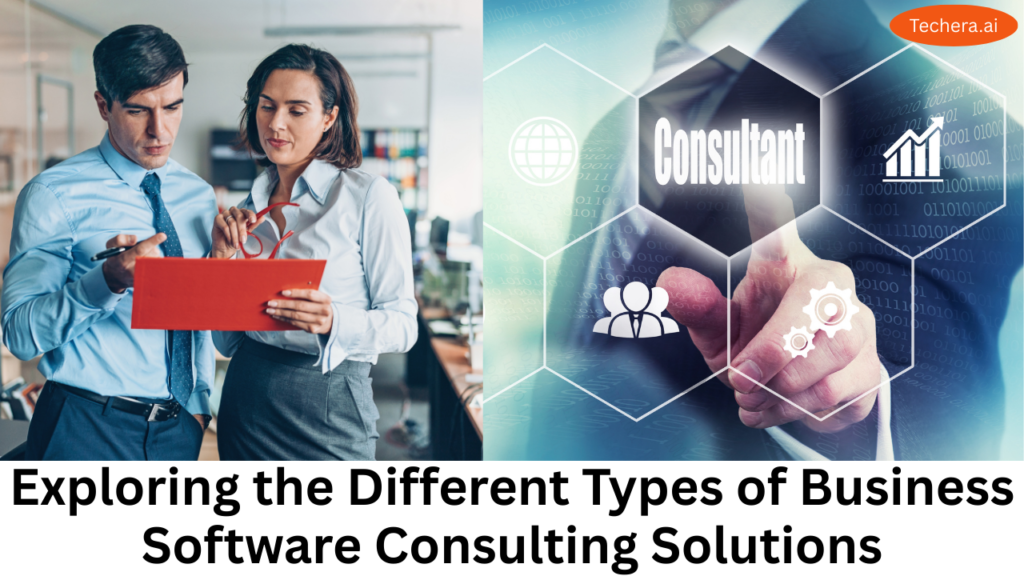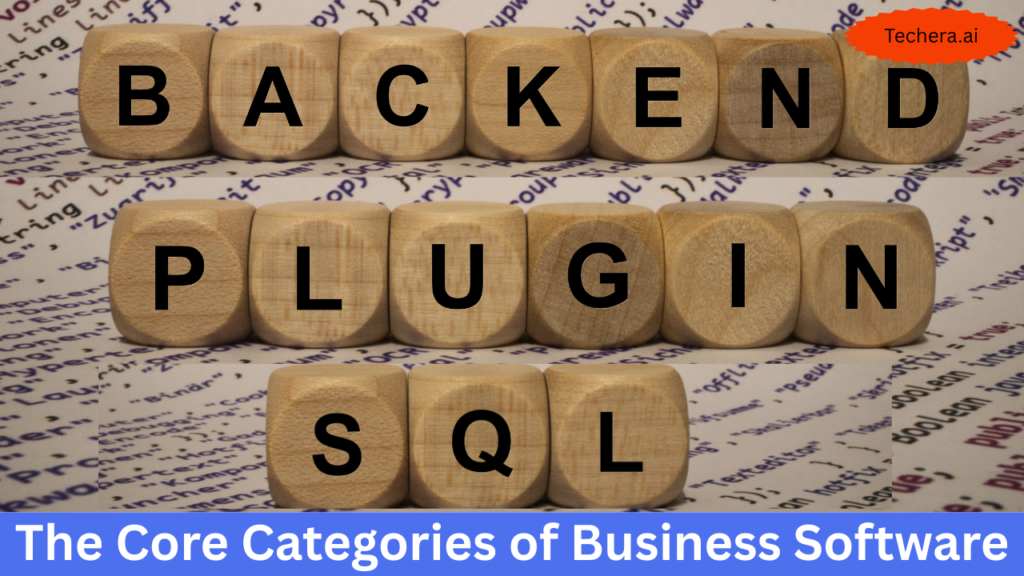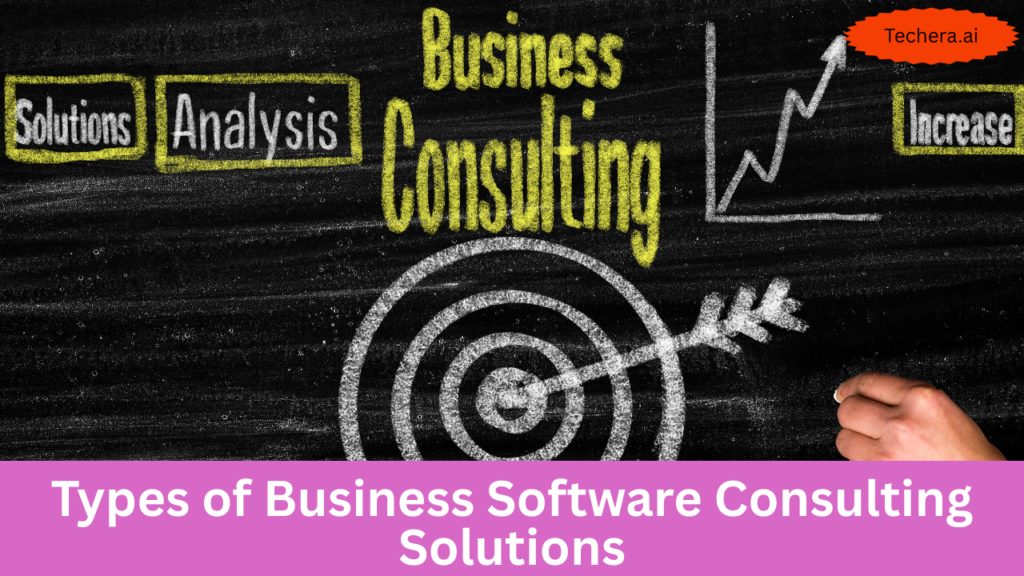
This blog post explores the different types of business software consulting solutions and how each can address unique business challenges. From ERP and CRM consulting to custom software development, discover how tailored consulting services can optimize your operations, drive digital transformation, and ultimately boost productivity and long-term success.
Introduction
Why Business Software Matters in Today’s Market
If you’re running a business in 2025 and still juggling spreadsheets, you’re falling behind. Software is no longer optional — it’s the engine that powers your operations, your customer experience, and your growth.
How Consulting Bridges the Tech Gap for Entrepreneurs
Let’s face it: choosing and using the right software can feel like navigating a maze. That’s where Business Software Consulting step in — they help you cut through the noise, pick the right tools, and make sure they work for you, not against you.
What is Business Software Consulting?
The Role of a Software Consultant
A software consultant isn’t just a tech expert — they’re a strategist, a planner, a troubleshooter, and a trainer rolled into one. Their mission? Help businesses find, implement, and optimize software solutions that improve performance.
When to Hire One
Struggling with growth, inefficiency, or disconnected systems? That’s your cue. Whether you’re scaling a startup or modernizing a legacy system, a consultant saves time, money, and stress.
The Core Categories of Business Software

ERP (Enterprise Resource Planning)
The powerhouse of business operations — handles everything from inventory to finance in one integrated system.
CRM (Customer Relationship Management)
Your sales and customer service team’s best friend — tracks leads, manages contacts, and automates follow-ups.
SCM (Supply Chain Management)
Keeps your supply chain lean, efficient, and responsive — especially critical for product-based businesses.
HRM (Human Resource Management)
Helps manage recruitment, onboarding, payroll, benefits, and performance — all in one place.
Accounting & Finance Software
Tools like QuickBooks or Xero that help you track expenses, manage invoices, and stay tax-compliant.
Project Management Software
From Asana to Monday.com, these platforms help keep teams aligned, tasks tracked, and deadlines met.
Marketing Automation Tools
Software that helps automate email campaigns, social media posts, and lead nurturing sequences.
Types of Business Software Consulting Solutions

Strategic Software Consulting
Aligning Tech with Business Goals
It’s not just about tech — it’s about using tech to reach your goals faster. Strategic consultants help you map out how software fits into your big picture.
Long-Term Planning & Digital Transformation
They help you think ahead — not just what you need now, but what you’ll need as you grow.
Also Read : How Business Software Consulting Boosts Productivity and Profitability
Implementation Consulting
Setup, Configuration & Customization
A great tool means nothing if it’s not set up right. Implementation consultants get you started the right way.
Data Migration and Integration
Moving from Excel or older systems? Consultants ensure your data is clean, safe, and connected.
Process Optimization Consulting
Improving Internal Workflows
These consultants dig into your day-to-day operations and rework them for speed, efficiency, and consistency.
Automation Opportunities
They’ll point out where tasks can be automated — saving you time and reducing errors.
Technical Support & Troubleshooting
Real-Time Support Models
Whether it’s a crash, bug, or user error, support consultants are your lifeline for smooth operation.
Reducing Downtime
The faster you fix issues, the less money you lose. A consultant keeps you moving forward.
Vendor-Agnostic Consulting
Platform-Neutral Recommendations
They won’t push a particular brand — they recommend what’s truly best for your business.
Avoiding Vendor Lock-In
These consultants help you maintain flexibility, so you’re never stuck with tools that don’t evolve with you.
Training & User Adoption Consulting
Empowering Teams
Consultants run workshops, build tutorials, and train your team until everyone’s confident with the new software.
Driving Adoption Rates
Because let’s be honest — what good is software no one uses?
Compliance & Security Consulting
Regulatory Requirements
They make sure your tools help you stay compliant with industry rules, especially in finance, healthcare, or legal sectors.
Data Protection Strategies
In today’s digital world, cybersecurity isn’t optional — it’s essential.
Benefits of Specialized Software Consulting
Tailored Solutions vs. One-Size-Fits-All
Generic tools don’t always cut it. Specialized consultants deliver solutions that actually fit your business.
Boosting ROI
A good consultant ensures you’re not just spending — you’re investing.
Staying Competitive
The faster and smarter you work, the harder it is for competitors to keep up.
Real-World Examples of Consulting Success
Small Business Wins with CRM Consulting
A bakery implemented a CRM to manage customer orders and loyalty programs — and grew repeat sales by 50% in 6 months.
Enterprise-Level Success with ERP Overhaul
A manufacturer saved $500K annually after replacing outdated software with a custom ERP solution guided by a consulting team.
Choosing the Right Type of Consultant
Evaluating Business Needs
Start with a simple question: what’s not working? Then work backward to find the right expert for the job.
Matching Consultants with Industry Experience
Look for someone who’s walked the walk — not just talked the talk — in your niche.
The Future of Business Software Consulting
AI-Powered Recommendations
Think of consultants who use AI to forecast business trends and recommend tools before you even know you need them.
Real-Time Cloud Integrations
Modern consultants are helping businesses go fully cloud-based, giving access to real-time data from anywhere.
Conclusion
Business software consulting isn’t a luxury — it’s a necessity in the modern age. With the right consultant on your side, you don’t just get software — you get strategy, clarity, and results. Whether you’re scaling a small business or leading a large enterprise, exploring the right consulting solutions can be your shortcut to smarter systems, stronger teams, and serious growth.
Frequently Asked Question
Q. How do I know which type of software consulting I need?
A. Start by identifying your current tech challenges — whether it’s setup, efficiency, or training — and match them to the type of consulting that addresses those issues.
Q. Is software consulting only for big companies?
A. Not at all! Small and medium businesses benefit just as much, if not more, by making lean, cost-effective software decisions early on.
Q. What’s the difference between ERP and CRM consulting?
A. ERP consultants focus on operations like inventory and finance, while CRM consultants zero in on customer relationships and sales pipelines.
Q. How long does a consulting project usually take?
A. It depends on the scope — anything from a few weeks for a CRM setup to several months for full ERP overhauls.
Q. Can consultants work remotely?
A. Yes! Most consultants today offer virtual services, saving you travel time and enabling faster collaboration.

